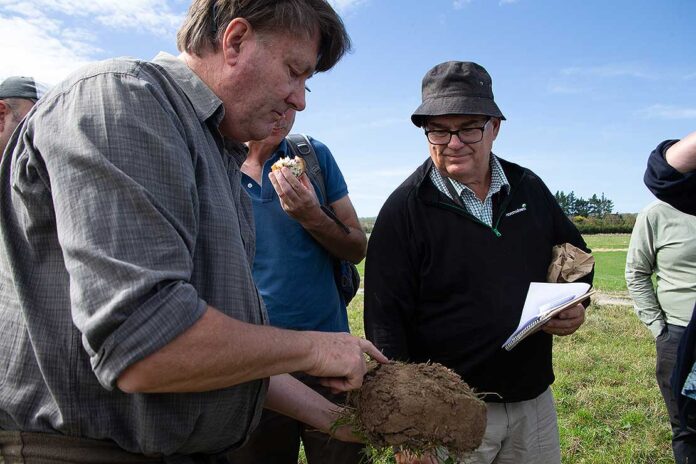Source: Massey University
Massey’s short courses in nutrient management, environmental and freshwater planning and other agricultural areas continue to be popular.
Demand for expertise in sustainable nutrient management, environmental planning and improved freshwater outcomes has seen Massey’s range of agricultural short courses pass 4300 enrolments.
Senior Research Officer within the School of Agriculture and Environment, Dr Lucy Burkitt, says the popularity of the courses shows the significant contribution the university has made to improved environment management in New Zealand.
“There was a gap in people qualified in these areas, so we went about filling that gap. Now, we’re sending people back to farms with training that will improve the sustainability of agriculture. Ultimately, Massey is having a real impact on the sustainability of New Zealand farming.”
The short courses are run through Massey’s Farmed Landscapes Research Centre (FLRC), part of the School of Agriculture and Environment within the College of Sciences. The courses are tailored to the needs of science, industry, policy and regulatory bodies concerned with primary production.
The first courses were in sustainable nutrient management and soil science, but other courses have been added along the way, such as Agricultural Green House Gas Emissions and Management and Farm Dairy Effluent: System Design and Management.
When it was mandated in 2020 that most New Zealand farms have a freshwater management plan, Massey was approached by industry to deliver new courses on this topic.
As a result, three courses were created: Analysis of New Zealand Agricultural Systems, Intermediate Farm Environmental Planning and, more recently, Advanced Farm Environmental Planning.
Now, a total of six FLRC professional development short courses are available, as well as two affiliated courses.
Professor of Dairy Production Systems Danny Donaghy who has been instrumental in developing one of the courses, says the shorter format of the courses are part of their appeal. “A lot of the people who enrol in our courses are working full time, so travelling to Palmerston North for a face-to-face course just isn’t feasible for them. These courses offer them relevant learning that can complement their current employment.”
Emeritus Professor Mike Hedley has been involved in initiating and continuing the delivery of Massey’s short course offerings over the years. He says what’s taught in the courses has become an essential skill base for New Zealand farmers. “If New Zealand farmers are to meet the agreed future greenhouse gas emissions and freshwater regulatory requirements that industry bodies and government have recently agreed on, they need nutrient management and farm environmental planning skills.”
These professional development courses have been significant in Massey achieving a 2021 Times Higher Education Impact Ranking of four out of 520 universities for the United Nations’ Sustainable Development Goal number six – clean water and sanitation.
Mike Manning, General Manager Innovation and Strategy at Ravensdown, has been one of many industry leaders who has championed the upskilling of rural professionals in nutrient management and environmental protection.
“In an area that has become more and more important, individuals see practical relevance in their roles, farmers feel more confidence in receiving advice and companies see a growing talent pool that is always progressing,” Mr Manning says.
“I believe the reason for the success of the courses lies in the connection to industry they bring. Outcomes in areas such as seed, agchem, nutrients and farm systems reflect the latest thinking and are grounded in reality. There’s every reason to think these kinds of courses will continue to go from strength to strength.”
More details on Massey’s professional development courses, including enrolments, can be found here.
Related articles
Massey key partner in programme supporting sustainable farming
Agricultural and horticultural students win scholarships
New short courses created to fill demand for agriculture experts
Created: 29/09/2021 | Last updated: 29/09/2021



